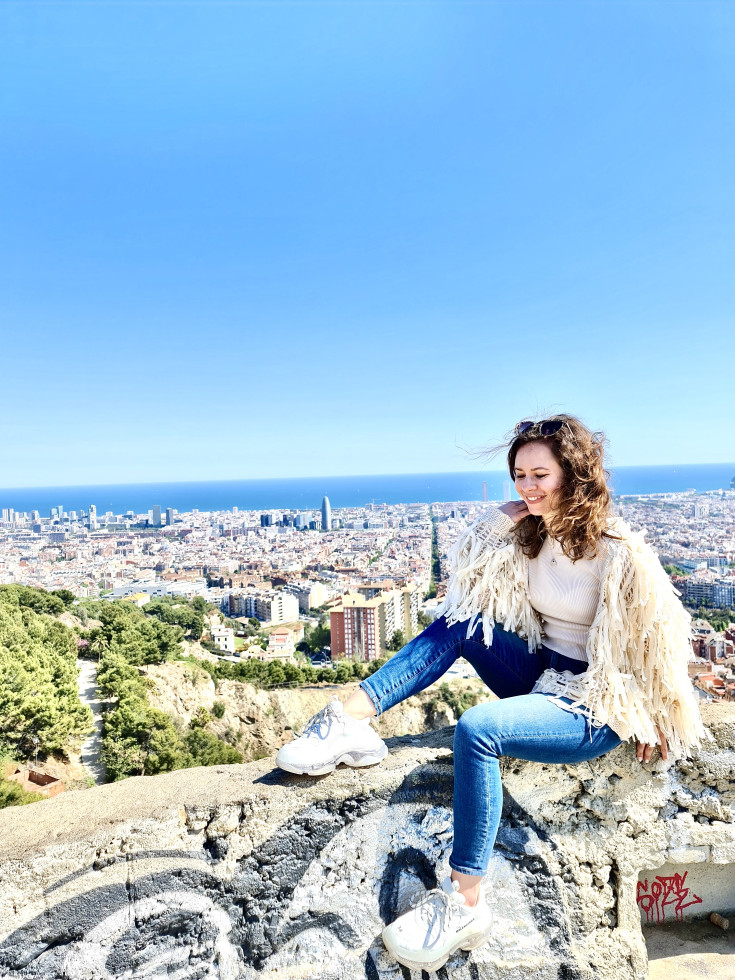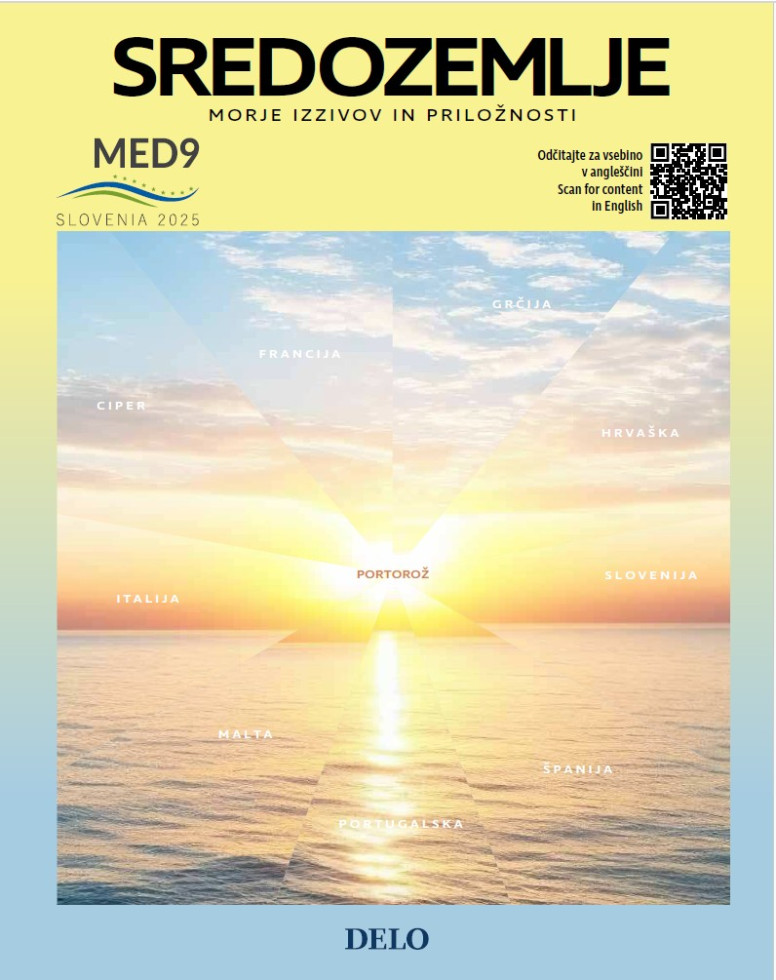Everybody is good-looking and fit in the land of Peter Pan
She had already become well acquainted with life in Spain during her time in Madrid – though she often points out that Barcelona is, in fact, Catalonia. The choice of Spain was a no-brainer. And so was the Catalan capital, the only city on the Spanish coast that met all her criteria: the right climate, an attractive lifestyle and solid career opportunities.
Settling down was much easier thanks to the Spanish employment contract her employer offered after she proved herself trustworthy – this allowed her to stay there long-term. With the contract in her pocket, she was able to obtain an NIE identification number – a requirement for opening a bank account, getting a phone number, renting an apartment… in short, for building a life there. The language, on the other hand, isn't one of the requirements – especially if you move in expat circles.
Fleeting relationships
It is no surprise that English is the dominant language in those groups. Still, she adds, it's generally possible to get by day to day with a mix of broken Spanish and English. However, for anything more complicated, and certainly north of the central Diagonal Avenue that divides the city, or in smaller towns, Catalan becomes a necessity.
She doesn't really have much contact with the locals, but based on what others have told her, she describes them as reserved, traditional and thrifty. She says Catalans generally don't like to socialise with expats such as herself, knowing they're usually there only temporarily – for a few years at most. When it comes to dating, it's pretty much the same: even if they go out with foreigners, they ultimately want to settle down with one of their own.
At first, Janine Koleta looked for company at group workouts on the beach, various meetups and parties. Yet she soon realised that constant coming and going of people meant she had to keep rebuilding her social circle and finding new friends. After all, she's been there much longer than most expats. They're usually drawn by the relaxed atmosphere, the fun and the freedom from responsibility – but pushed away by low wages and high rents. Another turnoff is the saturation with that kind of lifestyle and a desire to build something concrete and lasting, not fleeting and ephemeral – both professionally and personally.
"If you're even a little career-oriented and somewhat materialistic – and not a party-going druggie – you usually move on after a couple of years, once you've had enough of that Peter Pan kind of life. To actually build a life for yourself. Now I only look for friends at work and when playing padel. Being here for too long, I don’t feel like going to parties anymore. I'm settled now. I have a dog, I know what I like. Now I'm looking for people who share the same hobbies as me so we can socialise over them. But it's been quite a selective process," she admits.
Crowded beaches
"People are very relaxed. Everyone seems content with what they have. They just want to be left alone to do their thing – to work, play sports, party – and not have too many responsibilities. Appearance matters a lot to them too – everyone's into sports. You get the impression that no one really works. Even during the day, the beach is always full," says Janine, adding that she's completely adapted to this way of life. "In many ways, life in Spain is great, though it also depends on where you are. I don't know what life is like in smaller towns where there aren't as many expats. Here, where I live, people are very friendly toward us."
Among the main advantages she lists the proximity to the sea; the chance to enjoy the evening hours, since everything – from sunrise to work and dinner – happens later in the day; people's openness to socialising during the week, not just on weekends; the active lifestyle; the upbeat spirit within the expat community; and the fact that being fluent in the local language isn't essential. The downsides, she says, are the distance from nature, high rent prices, and the ever-present party scene.
They have a very vibrant techno and electronic music scene. Every few weeks for example there's a Sunday event called Brunch in the Park, a kind of daytime party that lasts until evening. People drink and take drugs there, and I honestly have no idea how they manage to go to work on Monday. If you're not into that scene, and if you don't like the fact that everything happens so late – dinner at ten, clubs at two in the morning – you're going to have a problem fitting in. In these four and a half years, I honestly haven't met a single person who was sober or didn't like to party.
At the same time, Barcelona is also known as "Peter Pan Land," as she calls it. A place where people simply don't want to grow up. They want to enjoy life, not settle down. "Especially within the expat community, it is hard to find people who actually want to commit to something. There's a lot of polyamory and many open relationships; the gay scene is huge – Barcelona has one of the largest gay communities in the world. Most people on dating apps are looking for flings. Maybe that came here from South America, but generally, people who arrive in Barcelona single, or start dating here, tend to stay single. People in Barcelona are incredibly good-looking and attractive – everyone's fit because they're all so into sports. But that's about it."
Crazy about padel
That's why she found love in a sport that's hugely popular across the entire Iberian Peninsula – and is steadily gaining following back home, too. Padel isn't that different from tennis, which Janine Koleta played intensively for fifteen years. It originated in Mexico in the 1960s and made its way to Spain a decade later – and from there, to Argentina. The sport truly boomed during the COVID-19 pandemic thanks to its nature – being "non-contact" and playable outdoors. In Slovenia, the first padel courts appeared in Ljubljana in 2022.
It's a sport that's a mix between squash and tennis, played on a smaller court than tennis. The court also has glass walls, which means the ball can bounce off them and you can hit it back into play. Padel is much easier to play than tennis, which makes it more accessible. Even someone who's never played tennis can become really good at padel. On top of that, it's a social sport – it's always played in doubles. It's such a fun way to stay active. That's why it's the fastest-growing sport in Europe, maybe even in the world – it's simply addictive," Janine explains.
Players can find partners with a similar skill level through the Playtomic app. The sport is so popular that you need to book a court for prime time – around six or seven in the evening – at least a week in advance. Even though Barcelona is full of padel courts. There are plenty of tournaments too – there is one practically every week. "If you want to play every day, you can."
Just like padel – which is cheaper to play in Barcelona than back home – everything else is easily accessible too. Shops are open on Sundays, and there's always something to do. "Although, compared to somewhere like London, Barcelona is actually pretty boring," adds Janine, who's experienced both. Life in Barcelona is also comfortable because you don't need a car. You can get anywhere by public transport or by bike, whether it's your own or a rental, like Ljubljana’s BicikeLJ. She has a female Maltipoo dog named Charly. Although dogs aren't allowed on buses, they're welcome in restaurants and shops.
Since she doesn't have a car in Barcelona, Janine bought another popular local means of transport – a scooter – just so she could ride it to her padel practices. The courts are namely outside the city centre, where she lives. As we spoke on the phone, she received a message that a padel session for that day had been cancelled. That's just how it is here," she sighs, admitting that if she's picked up any habits from living in Barcelona, it's being late, because everyone is, and changing plans at the last minute, since no one ever really sticks to what's been agreed.
Janina Koleta, born in 1994, is a former professional tennis player who moved to the United States on a scholarship to pursue her studies. She later completed her postgraduate degree in Madrid before relocating to London, where she began her first job. She has been living in Barcelona for four years now and works at Microsoft's local office, where she is responsible for acquiring advertisers for the Bing search engine in the German market. She is responsible for meeting monthly and semi-annual goals.
With her outstanding professional results in 2024, she ranked third globally within Microsoft Advertising and was recognised among the top 330 employees across all of Microsoft's 330,000 staff worldwide. For this achievement, she received the company's Platinum Club Award and an all-expenses-paid one-week trip to Hawaii, where all the award winners gathered to celebrate their success. "In a way, it was a lifetime achievement," she says. "With the goals getting more and more demanding each year, it will be difficult to repeat that achievement," she says.
Due to her strong professional performance, she even earned a promotion. She emphasises the value of persistence: "If you really want something, it's worth actively pursuing it – not just wishing for it." You need to have your results well documented. During negotiations, you have to lay all your cards on the table and show what you've accomplished, how you've contributed to the business, how you've helped others reach their goals, and prove that you've exceeded expectations – both within the framework of your role and beyond. If at first you don't succeed, don't give up. It didn't work out for me the first time either – but I succeeded on the second try."





